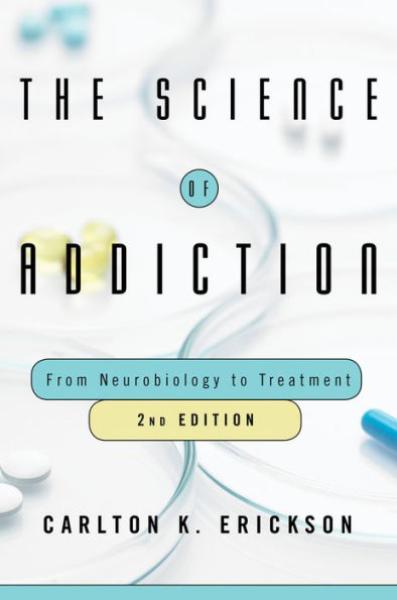Description
Over the past 10 years, neurobiologic and genetic research has provided an increased understanding of what causes drug addiction in the brain's reward pathway. Knowing this leads to a better understanding of how it may be treated and even reversed in those who successfully overcome the disease. This is especially true with addiction's possible precursors of mild to moderate substance use disorders. These latter disorders can usually be treated more easily by less intensive models of "treatment" that do not require actual brain chemistry re-regulation over time.
In this new edition, there are updated scientific references to support addiction as a medical brain disease, using the prevailing neurobiology, genetics, and psychological scientific literature. We now have more psychosocial and medicinal methods for reversing abnormal brain chemistry during drug addiction. There are also more effective intervention, counseling, and motivating methods (SBIRT, motivational interviewing) for overcoming resistance to treatment and resistance to change than were able to be discussed when the first edition was published over a decade ago.
Here, readers will find a fully-updated glossary of terms, additional abbreviations, and updated appendices. These will aid in clarifying the somewhat lengthy and science-based upgrades in our knowledge of neuroscience and genetics research that are so critical in understanding why addiction is such a serious and tough-to-treat disease. Utilizing the same easy-to-read language that was a hallmark of the earlier edition, Erickson keeps the science understandable yet comprehensive--appropriate for health professionals as well as lay readers who need and want this critical information.
An updated and expanded edition on the roles that brain function and genetics play in addiction.
Carlton K. Erickson, Ph.D. is a distinguished Professor of Pharmacology/Toxicology, Associate Dean for Research and Graduate Studies, Director of the Addiction Science Research and Education Center in the College of Pharmacy at the University of Texas at Austin, and an associate editor of the scientific journal Alcoholism: Clinical and Experimental Research. He is the recipient of the Nelson J. Bradley Award for Lifetime Achievement, given by the National Association of Addiction Treatment Providers (NAATP).
The Science of Addiction: From Neurobiology to Treatment seeks to educate addiction professionals at all levels on the principles and applications of neuroscience...The book covers in great detail what addiction is and isn't, discussing where it occurs in the brain and how it is diagnosed. The pharmacology of drugs of misuse is addressed, and a diversity of treatment strategies are explored...The Science of Addiction is being used as a text in several universities' addiction counseling curricula.--Gary A. Enos - Psych Congress
The Science of Addiction: From Neurobiology to Treatment seeks to educate addiction professionals at all levels on the principles and applications of neuroscience...The book covers in great detail what addiction is and isn't, discussing where it occurs in the brain and how it is diagnosed. The pharmacology of drugs of misuse is addressed, and a diversity of treatment strategies are explored...The Science of Addiction is being used as a text in several universities' addiction counseling curricula.--Gary A. Enos - Psych Congress
Can addiction be a disease if it looks like a choice and responds to behavioral treatments? If it's a disease, is the one with it responsible for his behavior? Is it the same as excessive use? Is biology the only lens of relevance? This book answers these questions in a way that's just right for the public, clinicians and scientists, at a time when we really need it.--Richard Saitz MD, MPH, FACP, DFASAM, Boston University School of Public Health
This book is a must-read both for the addiction professional, and for anyone concerned about America's opioid epidemic. Dr. Erickson draws upon his decades of experience to clearly define misunderstood and misused terms and to simply explain the neurobiological basis underlying the chronic disease of addiction. At the same time, he offers insight, compassion and hope for those helping and those seeking help for substance use disorders.--Mark Mishek, President and CEO, Hazelden Betty Ford Foundation
Product Details
- W. W. Norton & Compan Brand
- Mar 6, 2018 Pub Date:
- 0393712079 ISBN-10:
- 9780393712070 ISBN-13:
- 384 Pages
- 9.4 in * 6.5 in * 1.2 in Dimensions:
- 2 lb Weight:




